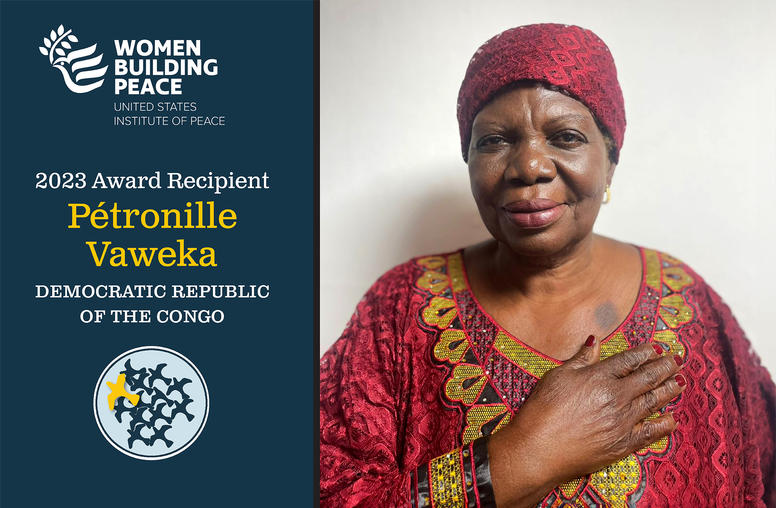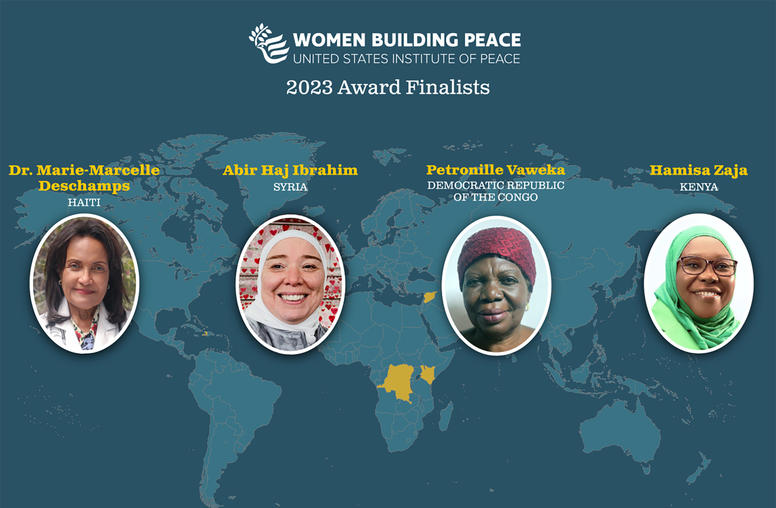USIP-Sponsored "Iraq and its Neighbors" Dialogue Calls for Regional Collaboration, Ongoing International/U.S. Involvement in Sta
Contact:
| Ian Larsen +1-202-429-3870 cell +1-202-657-7327 |
Lauren Sucher +1-202-429-3822 cell +1-202-657-7326 |

(Washington, Mar 23) - High-level policymakers and leading foreign policy figures from Iraq and its six neighboring countries met in Istanbul March 21-23 to identify key action points in the proposed regional Iraqi stabilization effort. The unofficial Track II dialogue, convened by the United States Institute of Peace (USIP) and Turkey’s Center for Eurasian Strategic Studies (ASAM), took place in advance of a significant ministerial conference on Iraq and its neighbors that will likely meet in Istanbul in coming weeks.
At the meeting’s conclusion, the group released a 36-point list of recommendations for a stabilized Iraq that calls for specific regional cooperation in border security, intelligence, religious dialogue, migration and ending sectarian violence.
As part of the declaration, the participants acknowledged their shared responsibility to support Iraqi reconciliation, a common objective that is inextricably linked to protecting their own national security interests.
"We discussed the key challenges confronting Iraq and its neighbors in an extremely constructive manner," said USIP Vice President Paul Stares, who directs the project. "The final declaration is testament to the positive attitude shown by all the participants and reflects broad consensus on the need to sustain a regional dialogue at a pivotal moment for Iraq."
The group released its "Marmara Declaration"—named after the Istanbul hotel where the meetings took place—on Friday, establishing key areas of agreement that official delegations should consider. Several of the group’s recommendations called for broad ongoing U.S. and international involvement in the region, including:
- The U.S. must commit itself to a regionally supported peace process for Iraq. It should improve its relations with Syria and Iran, especially as they concern Iraq. These states should reciprocate in a constructive manner.
- The U.S. should commit to a comprehensive strategy for a responsible withdrawal consistent with Iraq’s security and stability, based on milestones and a general time horizon.
- The U.S. should reiterate that it seeks no permanent military bases in Iraq and will not maintain military forces in Iraq unless requested by the Iraqi government.
- A broad international conference is urgently needed to reinforce Iraq’s political process, including the Iraqi government’s benchmarks and timetable.
The group also calls for a timetable for the government of Iraq to take full authority and responsibility, including for security throughout the country.
"Track II dialogues involving off-the-record discussion like the one we convened here this week are a much needed and widely welcomed complement to the diplomatic process," said Stares. "We brought together top-tier representatives from government, academia, civil society and the private sector from across the region, and the conclusions our participants reached will likely be a bellwether for the official meetings next month," he continued.
The entire Marmara Declaration can be downloaded online from the U.S. Institute of Peace's Web site.
More information is available online on the Iraq and Its Neighbors project and on USIP Iraq programs.


